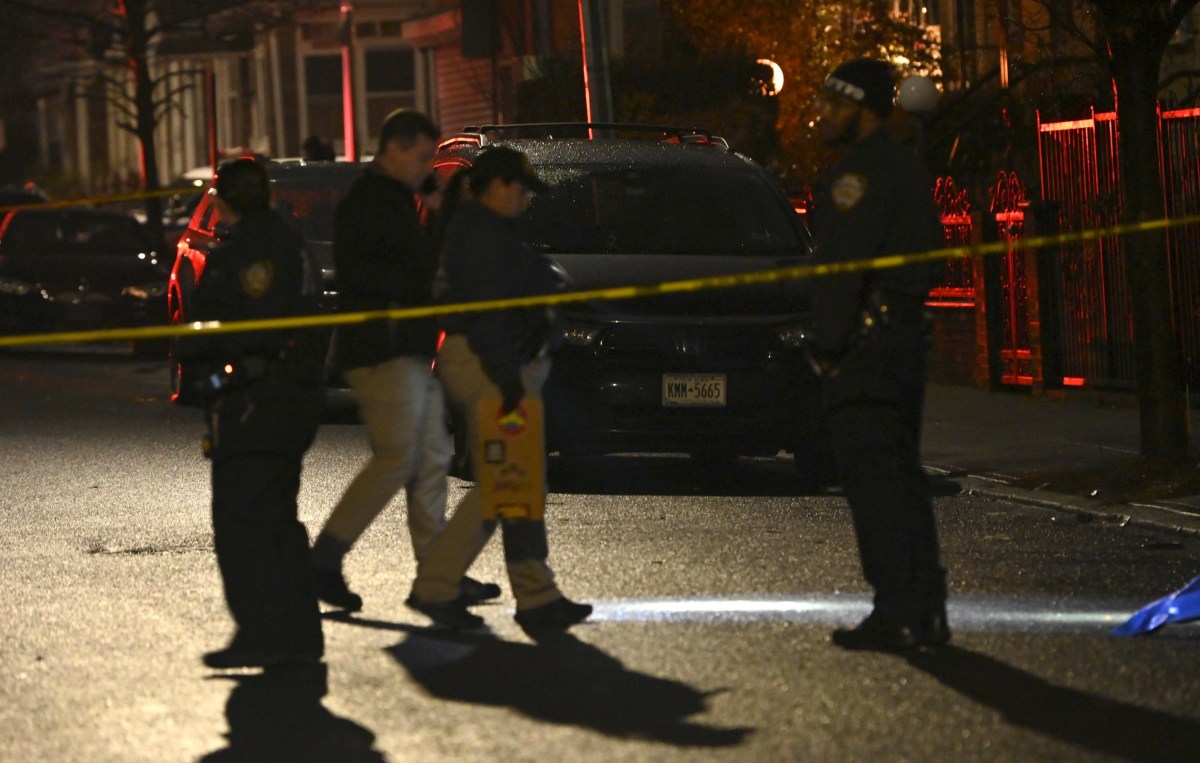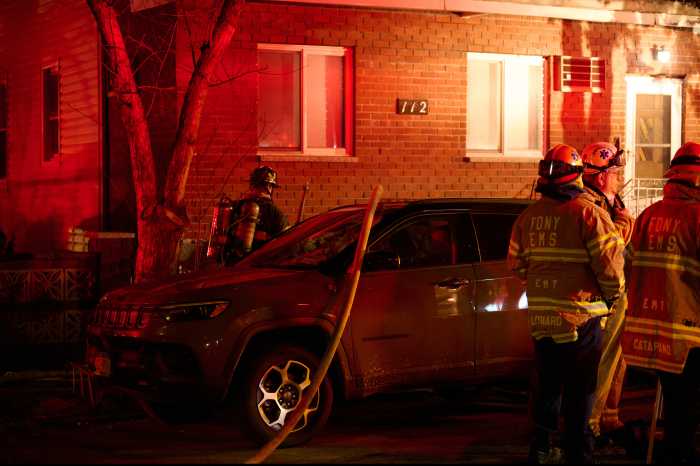Following a violent weekend in America, two of Queens’ Republican leaders said they supported calls for greater gun control laws — but dismissed allegations that President Donald Trump’s rhetoric had helped to fuel the hateful motivations of one mass shooter.
Joann Ariola told QNS on Aug. 5 that she supports the president’s statement of reducing gun violence through better identification of potential gun buyers experiencing mental health issues, and noted that as chair of the Queens County Republican Party she condemns any hate speech among her members or in her clubs.
“I think that [Trump] is right on point; it’s mental illness that’s pulling the trigger and not the guns,” Ariola said, paraphrasing the president’s remarks from earlier that morning. “However, there does have to be better red-flagging, better background checks, better history for people who are registering to be gun owners. … As county chair, I’ve taken an initiative against clubs and members of our party who have people coming to them to speak who are part of hate groups and I have disavowed any type of hate speak within our party.”
Ariola added that the county GOP plans to put candidates on the ballot to take on elected officials such as Congresswoman Alexandria Ocasio-Cortez, who Ariola believes is divisive in her discourse with the public.
Meanwhile, Councilman Eric Ulrich — the only sitting Republican lawmaker representing Queens — called for action against domestic terrorism and in favor of better gun control laws.
“You can still support the 2nd Amendment and common sense gun control measures — the two are not mutually exclusive,” Ulrich wrote on Twitter Sunday. “Domestic terrorism is the greatest threat facing our country right now. We need to recognize that these senseless acts of gun violence are not random, isolated incidents. How many more innocent Americans must die before we act?”
Asked whether he believed Trump’s rhetoric was, in any way, responsible for the rise of white supremacy and mass shootings in America, Ulrich said he didn’t think so — then suggested that blaming Trump was a matter of politics.
“It’s disappointing that some Democratic presidential hopefuls would use these tragedies to put the blame squarely on Trump,” Ulrich said. “The president has repeatedly condemned these senseless acts of violence. Did the media hold Presidents Clinton and Obama responsible for the massacres at Columbine or Sandy Hook? I don’t think so. I understand the country is divided and we are entering the 2020 election cycle but at what point do we simply put politics aside and try to come up with solutions for how to end gun violence in America?”
The El Paso shooter, Patrick Crusius, 21, posted a manifesto online that targeted immigrants with language that equated migration to an “invasion” and support for Trump. This echoed statements the president made at a recent campaign rally, in which he said, “You look at what is marching up, that is an invasion! That is an invasion!”
The president tweeted similar comments back in January and, in a March address at the White House, referred to the arrival of migrants at the southern border as an invasion, saying specifically, “It’s an invasion of drugs and criminals and people.”
By contrast, the shooter in Dayton, Connor Betts, reportedly posted support for presidential candidate Elizabeth Warren on Twitter and expressed left-wing views, according to Heavy.com.
Warren, however, has not made any comparable provocations in public.
The president addressed the nation on Monday after the two mass shootings which left nearly 30 people dead in two states and attempted to turn the issue of the discussion from guns to the mentally ill.
After mistakenly referencing Toledo instead of Dayton, Ohio, or El Paso, Texas, Trump blamed mental illness as opposed to public access to guns or gun culture making a sharp distinction between the two during his address.
Trump, while condemning white supremacy, did not offer any sort of policy to stem the violence.
“We must reform our mental health laws to better identify mentally disturbed individuals who may commit acts of violence and make sure those people not only get treatment, but when necessary involuntary confinement,” Trump said. “Mental illness and hatred pulls the trigger, not the gun.”
A special session in Washington, D.C., was necessary, according to U.S. Senator Charles Schumer, to debate finally imposing gun control measures that would make semi-automatic weapons less accessible.
He claimed 14,000 people have died in the U.S. as a result from gun violence since H.R. 8 was passed by congress in February. The bill would prohibit private party sales of firearms unless the gun has first been transferred to a licensed dealer for background check to be completed.
“America’s citizenry is on the brink, suffering in pain for people they love, communities they call home, and even strangers they have never met,” Schumer said. “And the mangled tie that binds this suffering, this fear, and this deep worry torturing every corner of the country now is rooted in the proliferation of semi-automatic assault weapons, [they are] all too easy access, and the loopholes that ensure their omnipresence.”
Schumer also claimed that 90 percent of Americans are in favor of gun control reforms and called on Senate Majority Leader Mitch McConnell to “gavel the Senate into an emergency session so we can take immediate action on the bipartisan, already-passed gun safety legislation the House sent to the Senate in February.”
Bill Parry contributed to this report.


































